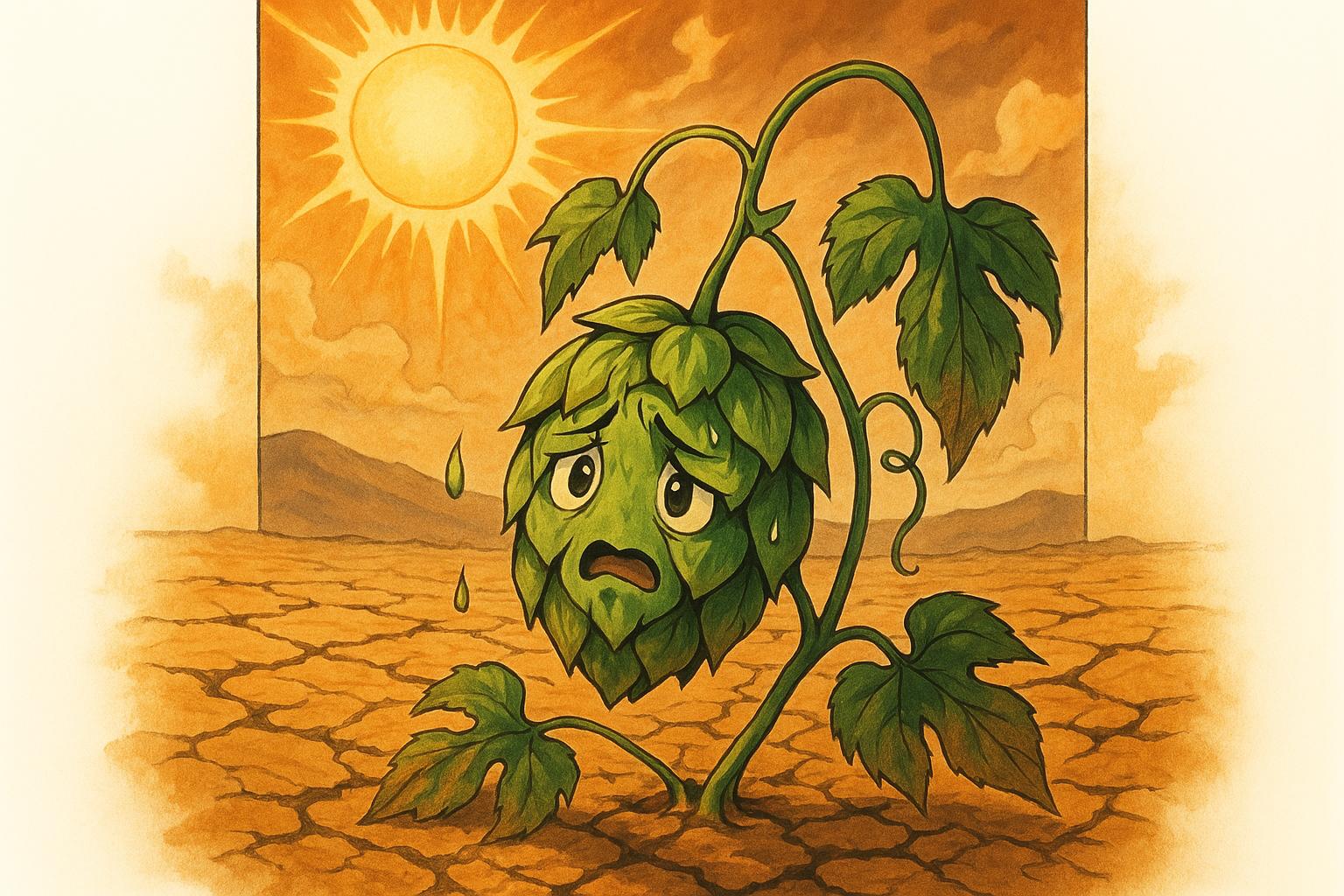The beer industry finds itself in precarious waters, facing an urgent crisis largely attributed to climate change. Atsushi Katsuki, the chief executive of Asahi, articulated a sentiment felt throughout the sector when he remarked, “Although with hotter weather the consumption of beer may grow and become an opportunity for us, climate change will have a serious impact… There is a risk that we may not be able to produce enough beer.” This warning, conveyed in a Financial Times interview, echoes a pervasive concern among brewers about the long-term viability of their core ingredients—barley and hops—as extreme weather patterns raise alarm bells.
A recent analysis by Asahi projects a troubling decline in barley harvests in France and Poland, estimating drops of 18% and 15% respectively by 2050 under scenarios of severe climate change. Even if global warming is kept under 2°C—an increasingly daunting task—the harvests would still suffer a decline of about 10% and 9% respectively. Such shifts would inevitably affect not only production volumes but also the flavour profiles of beers, as changes in hop quality become increasingly pronounced. Current trajectories suggest that the industry is on a path toward a potential 3°C rise in temperatures, which would exacerbate these challenges significantly.
The ripple effects of climate change extend beyond mere barley and hops shortages. According to research published in Nature Communications, hop ripening in key regions has begun occurring approximately 20 days earlier than it did in previous decades, contributing to reduced yields. It is estimated that the global supply of hops could decline by as much as 18% by 2050, while the qualitative parameters—specifically the alpha content, crucial for flavour—might drop by 20 to 31%. This paints a stark picture for an industry that thrives on consistency and quality.
Emerging data highlights another layer of complexity regarding the UK's beer supply chain. Recent research conducted by the British Beer and Pub Association (BBPA) indicates that extreme weather not only exacerbates current vulnerabilities but also hinders the ability to harvest hops optimally. In a changing climate, concentrated hop-growing regions are increasingly exposed to flooding and adverse growing conditions. Despite the UK only importing about 2% of its essential barley, it remains the fifth largest hop importer, with significant quantities coming from other countries—something that offsets precarious domestic situations but introduces risks associated with global supply chains.
Promisingly, there are initiatives aimed at mitigating some of these risks. In Colorado, Todd Olander of Olander Farms is pioneering efforts to develop water-saving barley strains in light of local water crises exacerbated by climate conditions. This exploration is part of a wider agenda involving farmers and brewers working collaboratively to address sustainability challenges while maintaining quality.
In Europe, the Society of Hop Research in Munich is actively developing new strains of hops capable of withstanding the rigours of climate change, including rising temperatures and diseases. Implementing these innovations in educational curricula for future brewers underscores the industry's commitment to sustainably adapting to the changing environment.
It is clear that the stakes are high. An analysis by GlobalData warns of substantially increased beer prices—potentially doubling—if climatic conditions continue to deteriorate. While this poses immediate concerns for consumers and industry profitability, it also raises deeper questions about the sustainability of 'luxury' products like beer. Academic research indicates that as food and water security become more pressing issues, the availability and accessibility of such products could decline, placing further pressure on breweries.
Bob Gordon of the Zero Carbon Forum urges a robust response, noting, “If we are to ensure our brewing industry is resilient enough to cope with drier summers and wetter winters, proactive steps are required.” This involves not only individual company efforts but a collaborative approach among stakeholders across the agricultural, hospitality, and brewing sectors to combat the climate crisis effectively.
Innovative practices are being put into place, including regenerative farming techniques aimed at improving soil health and resilience. Companies like Jubel, a UK-based craft beer producer, have switched to sourcing only regenerative barley, claiming that it could potentially halve carbon emissions linked to their supply chain. These sustainable practices promise better traceability and a reduced carbon footprint, addressing some of the industry’s pressing climate-related risks.
As experts in the field continue to caution about the long-term implications of climate change, the industry faces a dual challenge: not only must it adapt to changing environmental conditions, but it also needs to engage consumers in the narrative surrounding sustainability. Ensuring that brewing traditions are preserved while promoting innovative solutions will be crucial as the market navigates an uncertain future.
Indeed, as Jacob Aarup-Andersen, the CEO of Carlsberg, stated, “I think there is a chance that they will change in flavour but not a lot.” The reality, however, is that the flavour of beer is inextricably linked to the sustainability of the agricultural practices that produce its key ingredients. Without substantive action now, the future of beer could be as uncertain as the climate itself.
Reference Map:
- Paragraph 1 – [1], [4]
- Paragraph 2 – [1], [5], [6]
- Paragraph 3 – [2], [3]
- Paragraph 4 – [1], [5]
- Paragraph 5 – [1], [6]
- Paragraph 6 – [3], [5]
- Paragraph 7 – [6]
- Paragraph 8 – [1], [5]
- Paragraph 9 – [7]
- Paragraph 10 – [1], [2]
- Paragraph 11 – [1], [3]
- Paragraph 12 – [4], [6]
Source: Noah Wire Services
